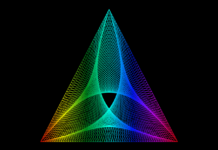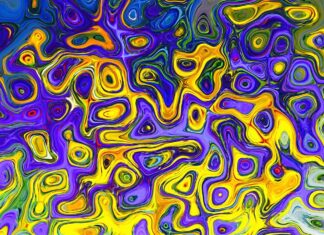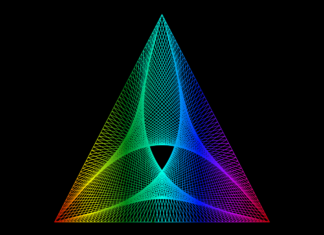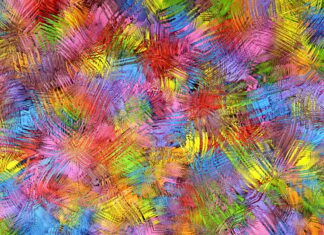Mind Uploading: Transcending Biology through Digital Replication
In the realm of science fiction and speculative technology, the concept of mind uploading stands as one of the most captivating and ethereal pursuits of humanity. Mind uploading, often referred to as whole brain emulation or digital consciousness transfer, is the hypothetical process of transferring an individual’s mind, memories, thoughts, and consciousness from the biological brain to a digital substrate, thereby achieving a form of digital immortality. This process envisions a future where human consciousness can be replicated and preserved in a non-biological form, allowing individuals to transcend the limitations of their physical bodies and potentially achieve a form of existence that exists beyond mortality.
The idea of mind uploading is deeply rooted in the intersection of cognitive science, neuroscience, philosophy, and computer science. It proposes that the intricate workings of the human mind, including memories, emotions, personality traits, and even subjective experiences, could be replicated within a computational framework. This would essentially involve creating a high-fidelity digital model of an individual’s brain, mapping the connections and neural pathways responsible for the functioning of their consciousness. The potential implications of such a breakthrough are profound and span across various domains, including life extension, space exploration, medical advancements, and existential questions about the nature of identity and self.
While the concept of mind uploading remains speculative and faces numerous technical, ethical, and philosophical challenges, it has garnered significant attention from both the scientific community and popular culture. Proponents of mind uploading envision a future where individuals could achieve a form of digital existence, allowing them to interact with the world and experience reality in ways that are currently unimaginable. This article delves into the intricacies of mind uploading, exploring the scientific theories that underpin it, the technological hurdles it faces, the ethical dilemmas it raises, and the potential societal impacts it could bring about. By examining the current state of research and speculation surrounding mind uploading, we aim to shed light on this fascinating concept that blurs the boundaries between biology and technology, mortality and immortality, and the tangible and the ethereal.
Digital Consciousness Transfer:
Mind uploading involves the transfer of an individual’s consciousness, thoughts, memories, and personality traits from a biological brain to a digital substrate, typically a computer or simulation.
Neural Mapping and Emulation:
The process requires mapping the intricate neural connections and pathways of the brain and emulating these within a computational framework, creating a digital replica of the individual’s mind.
Preservation of Identity:
Proponents believe that successful mind uploading would preserve an individual’s unique identity, allowing them to continue existing in a digital form while potentially transcending the limitations of the physical body.
Immortality and Life Extension:
Mind uploading offers the potential for digital immortality, where individuals could theoretically live indefinitely as long as the digital substrate remains functional and well-maintained.
Consciousness Continuity:
Advocates envision a seamless transition from biological life to digital existence, maintaining a sense of continuity in an individual’s consciousness and experiences.
Exploration of Space and Beyond:
Mind uploading could revolutionize space exploration by enabling digital explorers to traverse vast distances without the need for biological sustenance or protection from harsh environments.
Medical Applications:
The technology could revolutionize medical treatments by offering solutions for neurological disorders, brain injuries, and cognitive decline through the creation of digital brain backups or replacements.
Ethical Dilemmas:
Mind uploading raises profound ethical questions, including issues of personal identity, consent, digital rights, ownership of uploaded minds, and the potential for creating conscious entities without clear legal or moral status.
Existential and Philosophical Implications:
The concept sparks debates about the nature of consciousness, selfhood, and what it means to be human, forcing us to reevaluate fundamental philosophical questions.
Societal Transformation:
The realization of mind uploading could lead to a shift in societal norms, redefining notions of family, relationships, education, work, and the very concept of mortality.
These features collectively illustrate the multifaceted nature of mind uploading, from its technological and scientific foundations to its potential impacts on individuals and society at large.
The concept of mind uploading is a fascinating and complex notion that straddles the realms of science, philosophy, and imagination. At its core, it challenges our understanding of what it means to be human, blurring the lines between the biological and the digital. While the idea of transferring one’s consciousness into a digital substrate might sound like the stuff of science fiction, it has captured the imagination of thinkers, researchers, and artists alike, prompting deep explorations into the nature of consciousness, identity, and the very essence of existence.
One of the fundamental questions that mind uploading brings to the forefront is the nature of consciousness itself. This enigmatic phenomenon is the cornerstone of human experience, allowing us to perceive the world, form thoughts, and experience emotions. The prospect of replicating this intricate web of thoughts and sensations within a digital medium challenges our current understanding of the mind-brain relationship. It prompts us to ponder whether consciousness is an emergent property of complex neural interactions, or if it’s something more abstract that could potentially be replicated in an entirely different substrate.
The ethical considerations surrounding mind uploading are as profound as they are intricate. The digital replication of human consciousness raises questions about consent, autonomy, and the very essence of personal identity. If a person were to upload their mind, would the resulting digital entity truly be them, or merely a sophisticated copy? And if the digital consciousness were to develop thoughts and desires of its own, should it be afforded the same rights and protections as biological beings? The blurred lines between the human and the digital prompt us to reevaluate our ethical frameworks and ponder the moral implications of creating conscious entities in a realm that transcends traditional biology.
Moreover, the technical challenges involved in achieving mind uploading are monumental. The human brain is an incredibly complex organ, containing billions of neurons interconnected in intricate patterns. Mapping these connections and functions with the precision required for accurate emulation is a daunting task. Additionally, the brain is not a static entity; it constantly changes and adapts over time. Replicating this dynamic quality within a digital substrate poses yet another hurdle. As our understanding of neuroscience and computing advances, researchers grapple with the immense complexity of creating a digital replica that captures the essence of an individual’s consciousness.
The cultural and societal implications of mind uploading are equally thought-provoking. Concepts of mortality, legacy, and the afterlife take on new dimensions in a world where individuals could potentially live on as digital entities. Traditional rituals surrounding death and mourning might evolve or take on entirely new forms. Relationships and families could be redefined as the boundaries between life and death blur, and the concept of generational continuity takes on new meaning. The very fabric of society could shift as questions about labor, purpose, and achievement are reframed in a world where biological constraints are no longer absolute.
Artists and creators have long been fascinated by the idea of mind uploading. Science fiction literature, movies, and television shows have explored the concept from various angles, sparking both wonder and apprehension. These fictional explorations serve not only as entertainment but also as a mirror to our hopes, fears, and aspirations. They invite us to consider the emotional and psychological aspects of mind uploading—how it might feel to leave behind the familiar physical world and transition into a digital existence, to grapple with the implications of potentially outliving loved ones, or to confront the uncertainties of existence in a realm where the rules of biology no longer apply.
In conclusion, the concept of mind uploading is a captivating journey into the unknown, a fusion of science, philosophy, and imagination. It challenges us to contemplate the very essence of consciousness, the moral quandaries of creating digital life, and the intricate technical feats required to replicate the human mind. As researchers delve deeper into the possibilities and limitations of this idea, and as societal attitudes evolve, the discussions surrounding mind uploading will likely continue to captivate our curiosity and inspire new ways of thinking about the nature of human existence.






















